
With over 5,000 units sold locally last year, the Nissan Urvan became one of the Japanese car maker’s best-selling vehicles in 2020 — second only to its flagship pickup truck, the Navara. And despite the pandemic, it’s easy to understand how Nissan’s trusty hauler still managed to rack up decent sales figures.
The reliable workhorse has been the go-to family carrier, business utility vehicle, and a transport network vehicle service (TNVS) staple. Nissan’s Urvan even helped deliver meals to our frontliners at the Research Institute of Tropical Medicine (RITM), adding to its growing number of accolades. And with the Public Utility Vehicle Modernization Program (PUVMP) slowly pushing towards bringing passenger vehicles up to date, you could be looking at the new “king of the road.”
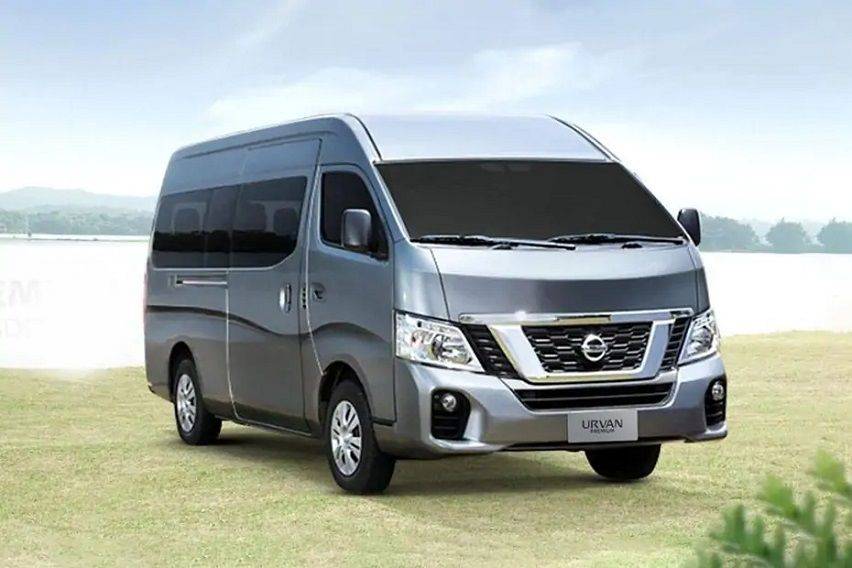
Here’s a breakdown of what’s good and what’s bad about the Nissan Urvan, to help you make a better decision should you be looking to invest in it.
Pros:
1. A spacious interior
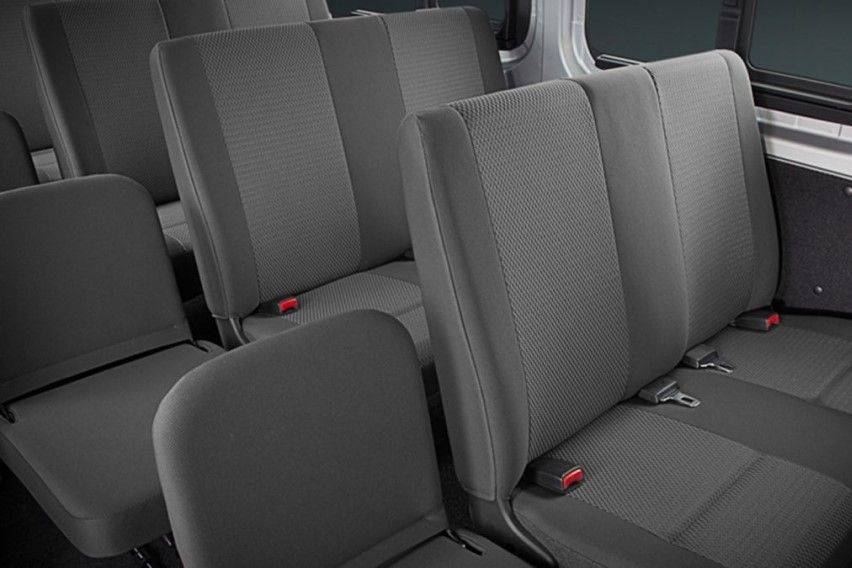
Depending on what variant you’re eyeing, the Nissan Urvan can accommodate either 15 or 18 average-sized passengers with decent legroom and headroom for everyone. Its fifth-row seats can be collapsed to make room for more cargo. Speaking of which, Nissan Philippines also offers a three-seater Cargo version of the Nissan Urvan for those planning to use this road train of a vehicle for hauling large loads.
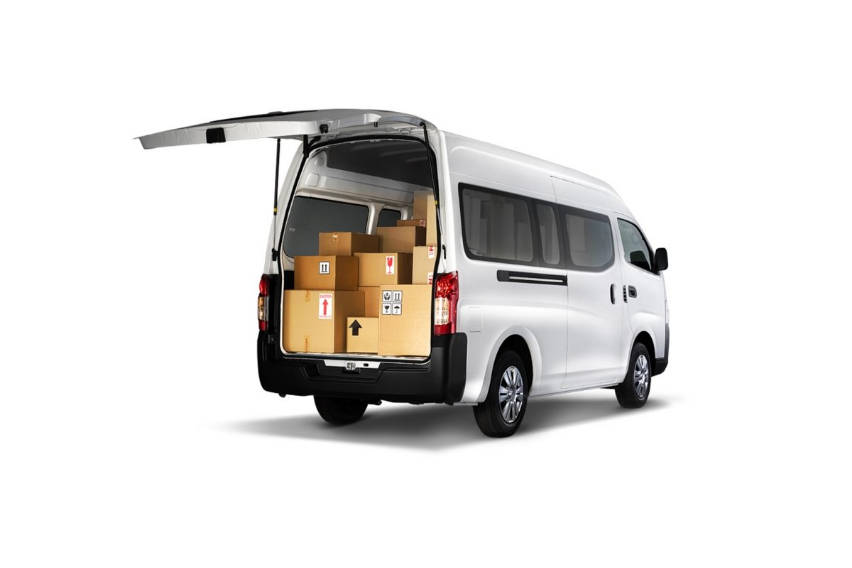
In terms of size, the Nissan Urvan is at par with the likes of the Toyota Hiace and the Foton View.
2. Reliable engine
Powering the Nissan Urvan is the Japanese car manufacturer’s YD25DDTi turbo diesel engine. The inline four-cylinder, DOHC, 16-valve, variable turbocharger (VGS) mill boasts both pull power and fuel economy. It can put out 127 tough horses with 356Nm of torque, good enough for moving people and cargo. Hopeful owners can also benefit from the YD25DDTi’s reduced CO2 footprint and low noise and vibration.
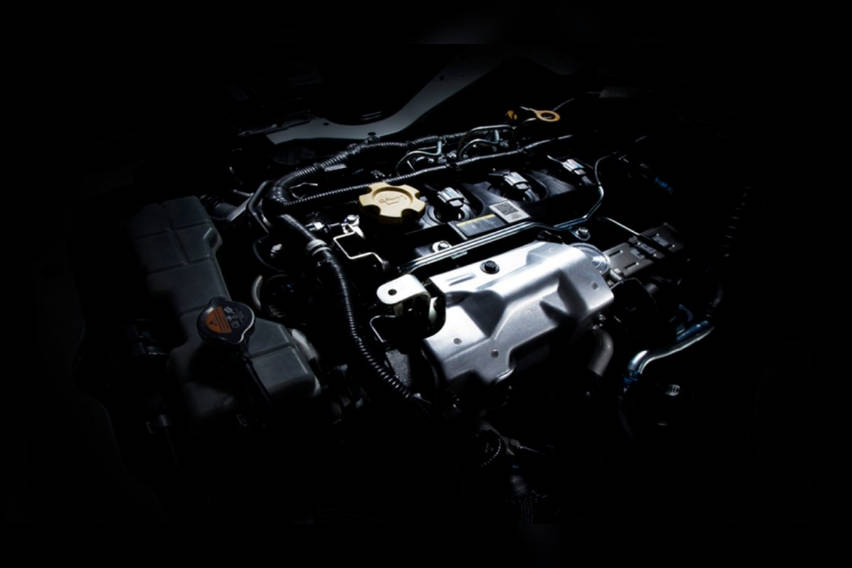
The same engine powers all Nissan Urvan models across the board including its Premium MT and Premium AT variants.
3. Good ride comfort
Whether transporting employees to the office or taking them on a team building trip, the Nissan Urvan offers good ride comfort on both short and long drives. Outfitted suspensions are torsion bars with stabilizers at the front and a rigid axle with leaf spring at the rear.
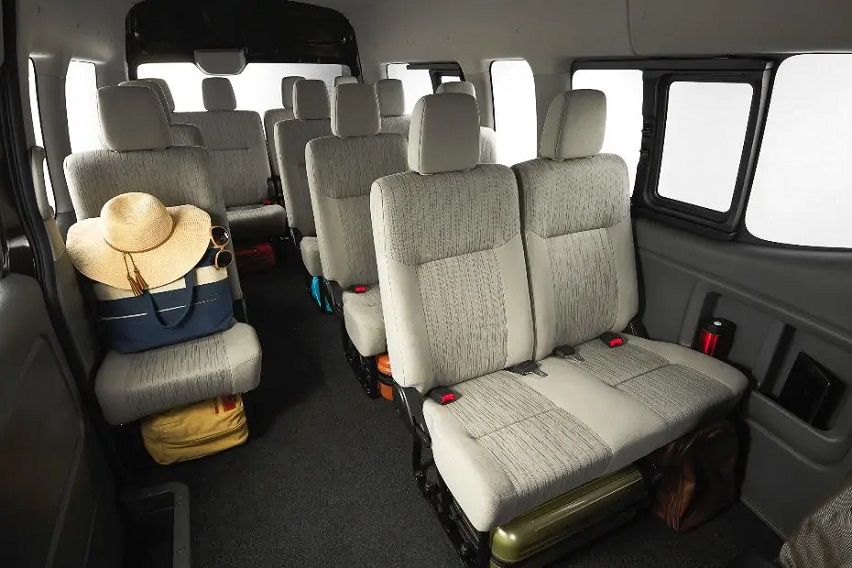
Inside, passengers are treated to fixed bench seats in fabric for the standard 15 and 18-seater variants, while those who opt for the premium models get bench-type seats with manual reclining function and adjustable head restraints in premium fabric. Air-conditioning for the standard models have 12 independent rear seat A/C vents while the premium trims get 14 independent rear seat A/C vents, both with independent control. They also included a lower tray with a vent from the air conditioner to keep drinks cool when stuck in traffic under the scorching sun.
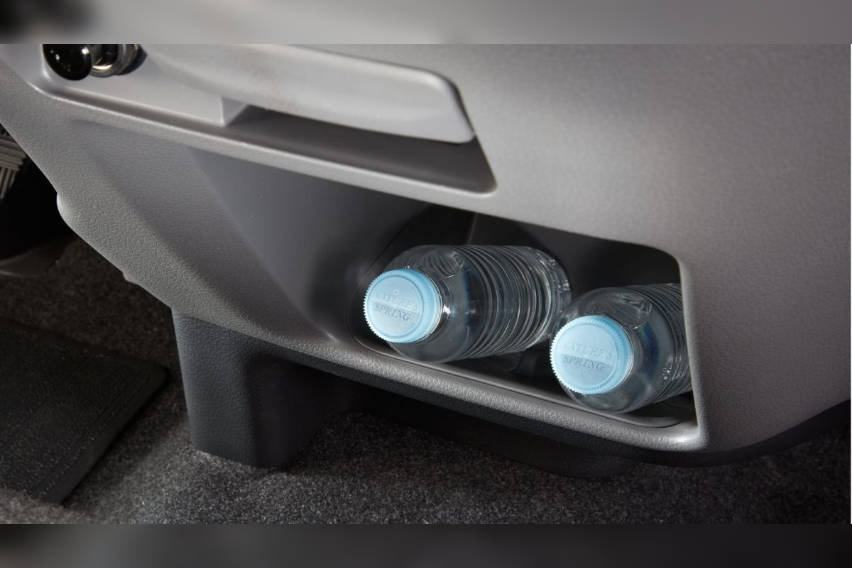
To be expected in premium models are features like the sliding-door closure assist on both the side and the rear doors, smooth sliding side windows, seatback pockets for the passengers at the back, as well as the addition of eight cup holders and three bottle holders.
Cons:
1. Dated interior.
Oddly enough, the Nissan Urvan offers an interior with a rather dated design. Even the premium fabric used on the premium models make you feel like sitting in an office rather than in a luxury vehicle. Granted that the Urvan offers a comfortable ride, it definitely won’t win awards when it comes to style.
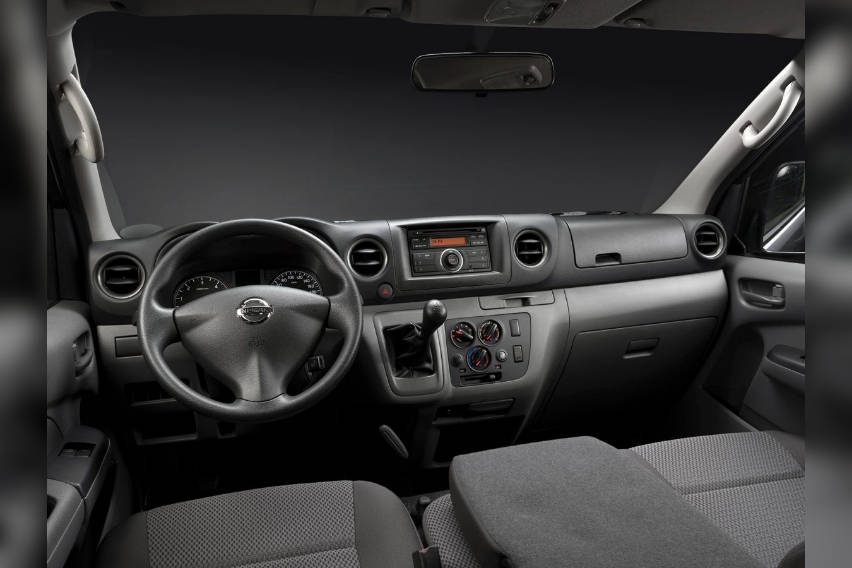
The cabin also sends the message that it values convenience over aesthetics. With dashboards made with black textured plastic, it’s clear that it was built for utility rather than to look fancy. The outfitted audio systems are good enough to keep drivers company but maybe lacking a touch of modern technology. Both the standard and premium models get an antiquated 2-DIN single-in-dash CD/tuner/aux audio unit, with the former equipped with two speakers and the latter having four. Air-conditioning is also controlled using analog dials.
2. Boxy exterior.
The Nissan Urvan has been an iconic vehicle in the Japanese car company’s lineup. As we’ve briefly covered above, it delivers strong annual sales figures worldwide. Known as the Caravan in other markets, the Urvan holds high regards in Nissan’s books. That said, the same boxy dimensions have been carried over from past generations.
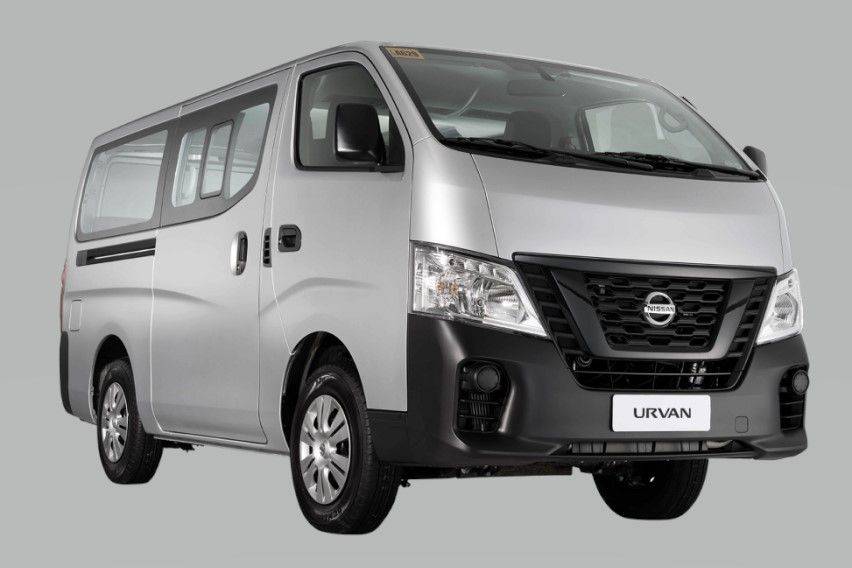
However, the Urvan’s rectangular shape may not exactly appeal to prospective car buyers looking for a family vehicle who might prefer sleek and stylish vans like the Starex from Hyundai.
Splash the cash or hard pass?
Despite its dated and basic design, the Nissan Urvan is a practical choice, especially for fleet operators and entrepreneurs. Its roomy interiors and relatively fuel-efficient engine makes for a perfect combination for those looking to invest in an affordable utility-oriented vehicle.
Photos from Nissan
Also Read:
Hospitals, Facilities Get New Nissan NV350 Urvan Ambulances from PCSO
Copyright © Carmudi 2014-2025. All Rights Reserved.